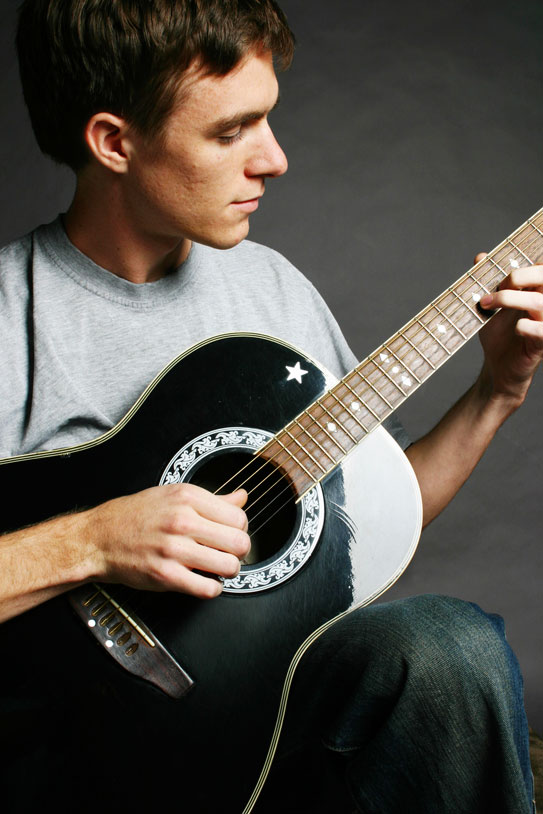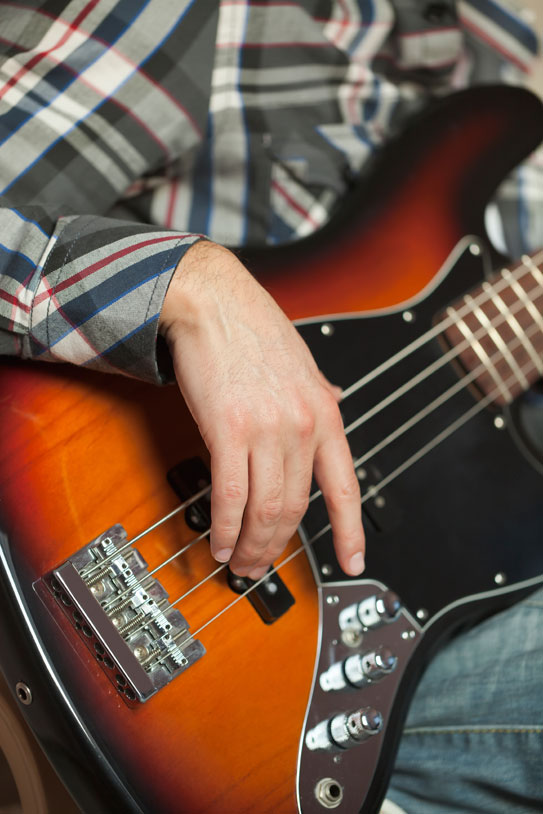How To Construct A Practice Routine
By: Scott Gilliam
Posted in: Music News And Tips
What should I practice? It's such an expansive question and the answer is sometimes hard to quantify. In order to play an instrument there has to be a certain amount of technique one has to acquire before music can be made. Depending on the instrument the techniques might be specifc: how to hold a guitar pick, fingerings on a saxophone, independence of limbs on the drums, etc... Regardless of the instrument though, my opinion is that what you should practice usually boils down to the same thing in terms of content. That is to say it should be specific to what your musical goals are and what is on your musical horizon. Do you have a gig or recital? Maybe a jam session with a friend or a church service you perform at. It can be as informal as an open mic or perhaps you play in the school band? This leads us to the first part of your practice routine...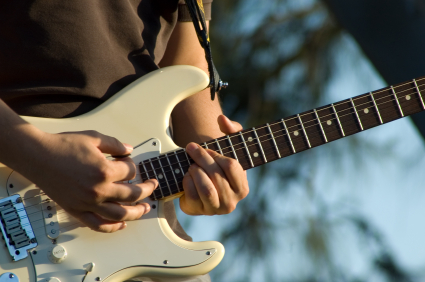
1. Establish musical goals
If your goal is to just "get better" it leaves too much area left to chance and your efforts will be unfocused. Have short, medium and long term goals. I also think that a performance based goal is the best motivator in terms of creating incentive to practice. It doesn't have to be something done in public necessarily, the prospect of that is terrifying to some people and its often more of a deterrent to play rather than positive reinforcement. How bout jamming at a friends house? Making music with others is one of life's great joys! Forget ego and be willing to make mistakes and learn. Pat Metheny's advice on getting good quickly "Be the worst player in your band." In terms of musical goals make them attainable and expand your horizons. A short term goal could be learning the notes on the 6th stg of the guitar, or learning a few bars of your favorite tune. Medium term goals might be learning all the notes on the neck and all of your favorite tune, including the solo if there is one. Long term goals could be an open mic at your local watering hole, perhaps a recital or just performing for family and friends. Now on to more specifics...
2. Learn your fundamentals
If there is one thing that great musicians have in common it's mastery of fundamentals. Often times, they are the same things regardless of instrument. Some of these things are: ear training, rhythm, mastery of scales and chords, improvisation, sight reading, establishing a repertoire, theory, etc... Some time should be spent during every practice session to address these topics. Start simple and build a solid foundation. If it's chords on the guitar, start with the common ones that you need to play the music you enjoy. For many guitarists, that involves open pos chords such a C, G, D, Am, and the like. After that has been established, make a conscious effort to learn new voicings. Triads are essential for understanding chord construction, chord inversions and learning the general layout of the guitar neck. Learn the pentatonic scales, major and minor in one pos and then all five pos. Follow that up with learning them in all 12 keys. Proceed to seven note major and minor scales, one pos in one key to start and eventually five pos in all 12 keys. Practice interval recognition to develop your ears and relative pitch. Repetition is key in order to develop mastery, we need our 10,000 hours according to Malcolm Gladwell's terrific book Outliers. Remember - short, medium and long term goals!
3. Develop a repertoire
While we work on our chops it's important to remember what drew you to the instrument in the first place - to make music! Technique, fundamentals, theory, are all tools that enable us to make the music we have in our head and our heart. Establishing a repertoire of tunes you love to play is critical when it comes time to communicate with other musicians. Have some good tunes for jam sessions that others will likely be familiar with. I believe it could really be in any genre - whatever you love! I would add that learning some blues is great idea because its a relatively simple form and allows for improvisation. Most musicians are comfortable with a 12 bar blues. Also set goals for learning new songs, ranging in difficulty from easy to advanced. Have some tunes you are comfortable with and are confident playing and then augment that with pieces that are a work in progress that you can pull off without too much hand wringing. At that point, go for the stuff that's beyond you. Don't allow your playing to plateau and try to stay inspired.
4. Be creative and write your own music
The creative process is a mystery and somewhat elusive. Writing music requires practice like anything else but the inspiring part is that there aren't necessarily any steadfast rules for how to do it. It is so gratifying to create something that comes from you and even more so if you then play it with others. Having no restraints in regard to whether people will hear it or having commercial viability is liberating. Allow some time in your daily practice to create and play what you feel. You may just create a classic piece of music!
5. Learn Piano
This lesson is catered to and probably read by guitar players - if you are a pianist obviously this wouldn't apply to you. Having some basic keyboard ability is invaluable in regard to understanding harmony, orchestration, theory and just about anything you can think of. In terms of a songwriting tool I can think of none better than the piano. Everything you need is under your fingertips, the bass, harmony and melody. You can learn to read music in two clefs - treble and bass, learn chord inversions as well as voice leading. Voice leading is the term used to understand how to move chords in a logical and economical fashion. Music students in school study the Bach chorales to understand traditional theory, and the piano is used to demonstrate these concepts. There is a reason that every music major must take piano as a part of their studies. It's relatively simple to learn some basic chords and scales on the piano and it will help further your musical acumen.
6. Transcription
One of the best things you can do as a musician is transcribe your favorite music. It will teach you to use your ears to figure out chords, progressions, solos, harmonic concepts, etc...
When you learn music with your ears and through your own process it deepens your understanding and allows you to to eavesdrop on an artists' process. By learning the language of others you will develop your own voice. I love You Tube for many things but try to avoid that as an option for learning unless you are stuck. The majority, if not all of the master musicians we admire didn't have You Tube at their disposal and had to transcribe the old fashioned way. I am not sure who this quote is attributed to but I'll paraphrase - " Imitate, assimilate, and then innovate."
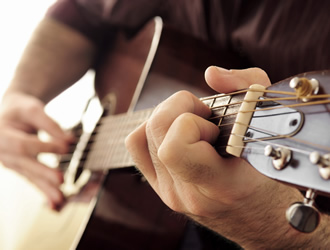 Now that we have some topics for our practice routine it's important to mention time management. For every person this is an issue and nowadays more than ever. I often think about a young Jimi Hendrix going into his bedroom to practice. I imagine a guitar, a bed, a small radio or record player and a few other misc items. This is due to the period of time in which he grew up and not any economic consideration. Now imagine the bedroom of a young person in 2015 - rife with potential distractions! Turn off your gadgets and find a quiet place so that you can roll up your sleeves and have a productive practice session. I also believe short focused practice sessions are more productive, say 30 mins and then a short break. You will need time to refresh your coffee anyway! All of these things can be tweaked and for sure there is no one way to accomplish all the goals we are seeking but I hope this lesson gives you some guidance and maybe some inspiration.
Now that we have some topics for our practice routine it's important to mention time management. For every person this is an issue and nowadays more than ever. I often think about a young Jimi Hendrix going into his bedroom to practice. I imagine a guitar, a bed, a small radio or record player and a few other misc items. This is due to the period of time in which he grew up and not any economic consideration. Now imagine the bedroom of a young person in 2015 - rife with potential distractions! Turn off your gadgets and find a quiet place so that you can roll up your sleeves and have a productive practice session. I also believe short focused practice sessions are more productive, say 30 mins and then a short break. You will need time to refresh your coffee anyway! All of these things can be tweaked and for sure there is no one way to accomplish all the goals we are seeking but I hope this lesson gives you some guidance and maybe some inspiration.
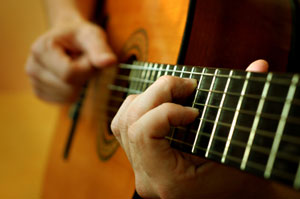
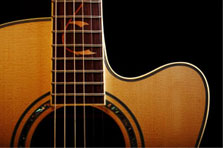
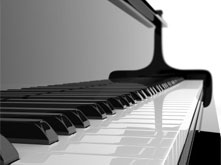
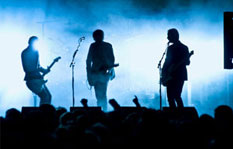
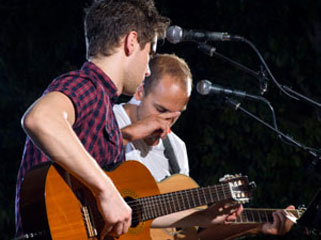

 Now that we have some topics for our practice routine it's important to mention time management. For every person this is an issue and nowadays more than ever. I often think about a young Jimi Hendrix going into his bedroom to practice. I imagine a guitar, a bed, a small radio or record player and a few other misc items. This is due to the period of time in which he grew up and not any economic consideration. Now imagine the bedroom of a young person in 2015 - rife with potential distractions! Turn off your gadgets and find a quiet place so that you can roll up your sleeves and have a productive practice session. I also believe short focused practice sessions are more productive, say 30 mins and then a short break. You will need time to refresh your coffee anyway! All of these things can be tweaked and for sure there is no one way to accomplish all the goals we are seeking but I hope this lesson gives you some guidance and maybe some inspiration.
Now that we have some topics for our practice routine it's important to mention time management. For every person this is an issue and nowadays more than ever. I often think about a young Jimi Hendrix going into his bedroom to practice. I imagine a guitar, a bed, a small radio or record player and a few other misc items. This is due to the period of time in which he grew up and not any economic consideration. Now imagine the bedroom of a young person in 2015 - rife with potential distractions! Turn off your gadgets and find a quiet place so that you can roll up your sleeves and have a productive practice session. I also believe short focused practice sessions are more productive, say 30 mins and then a short break. You will need time to refresh your coffee anyway! All of these things can be tweaked and for sure there is no one way to accomplish all the goals we are seeking but I hope this lesson gives you some guidance and maybe some inspiration.